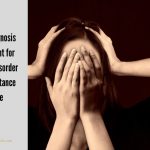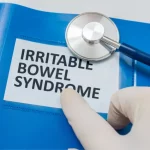
Image Source: Pexels
Concussion falls under the category of mild traumatic brain injury (mTBI) that can result from a severe blow to the head. Interestingly, it can also result from vigorous shaking of the head and body. The majority believes that a concussion always happens with the loss of consciousness. However, that is not always the case. Over 90% of concussions on the sports field occur without any loss of consciousness. The person can feel only temporary pain, delirium and nausea before he or she goes back to the field. As a result, in over 40% of the cases, the patients go back to play too quickly, thereby increasing their chances of further injury.
Close to 3 million sports-related concussions happen in the US alone. As per the reports from the Centers for Disease Control and Prevention (CDC), it is the most common traumatic brain injury. Around 329,290 children reported to emergency rooms across the United States with symptoms of concussion in 2012 that were results of sports-related injuries. The CDC statistics from 2013 show that the leading cause of concussions is not sports-related injuries, but sudden falls. It is the most common cause of mTBI among the elderly and the kids. Mild TBIs can also result from driving accidents, mishaps in amusement parks, or during regular household chores. Any strong impact that can jolt the brain can lead to an increased possibility of a concussion.
What influences the improvement time after a mild TBI?
While most patients recover well over time, for some the symptoms can last for several weeks, months or even years after the incident. It is a combination of the physical stress and the emotional trauma that delays the recovery process in these few individuals. People, who have experienced a concussion in the past, have increased risks of getting another one from a similar incident. Statistics also show that the recovery is usually slow in young adults, teens, and children. Another interesting study shows that patients, who have resumed their active lifestyle have recovered better and faster than those, who went on complete bed rest following the injury. Teenagers and children recover the fastest only when they are fully active. It shows a correspondence between the level of physical activity, mental occupation, and recovery.
What are the symptoms of a concussion?
There are a few telltale signs of concussion that you should watch out for after a forceful impact to the head. There are four categories of symptoms –
Difficulty in thinking and remembering
- Feeling slow
- Difficulty in concentrating
- Challenges in thinking clearly
- Inability or difficulty in remembering new facts
Physical discomfort
- Nausea and/or vomiting
- Blurry vision and headache
- Difficulty in finding a balance
- Lack of energy and increased fatigue
- Heightened sensitivity to light and loud noises
Emotional changes and mood swings
- Increased sadness
- Increased irritability
- Emotional instability
- Increased anxiety or nervousness
Changes in sleep
- Sleeping for more extended hours than usual
- Trouble initiating sleep
- Difficulty in remaining asleep
- Sleeping less than usual
For a few, at least one of these symptoms appears on the spot. Athletes, especially those playing football and ice hockey, often take blows to their head. However, they do not realize the gravity of these impacts until they resume their everyday life. It is possible for some of these symptoms to only become apparent after days or even weeks. (See also: How to Conquer Post-Traumatic Stress Disorder)
What are the diagnostic methods for detecting a concussion?
It is difficult for many, especially children to explain the nature of their injury and express the discomfort they are feeling. Sadly, there is no concussion test in western medicine that can conclusively diagnose it. Instead, it involves a multi-step approach –
- The first interview
During the first interview with the doctor, he or she enquires about any a present headache, instances of blackouts and loss of memory. They note any unusual symptoms that can be a result of the impact.
- Determination of the seriousness
The next phase involves the determination of the severity of the symptoms using standardized methods like the sideline concussion assessment tool (SCAT-5). These are not concussion tests, but comprehensive tools that can evaluate the set of symptoms, memory and attention level, and analyze the balance and coordination of an individual to determine his or her injury level.
- Neurological examinations
The next step is to evaluate all neurological signs and symptoms of the patient. It includes the test of sensation, reflexes, coordination, nerve functions, and mental status of the person to determine the severity of the concussion.
Where does western medicine fall short in concussion treatment?
However, western medicine misses the most obvious link between the instances of concussion and the emotional state of the patient. Statistics show that patients, who were already suffering from emotional distress had higher chances of suffering from mild TBIs than those who were generally happy and satisfied. Neurologists and neurosurgeons recommend brain imaging to rule out physical damage to the brain, but concussion rarely has its foundations in physiological changes. Extensive research shows that even without any structural damage to the brain, people might present with severe signs of mild TBI.
How can one treat concussions completely?
A new and comprehensive approach towards treating concussions involves taking into account the emotional state of the patient immediately before the injury and after the concussion. Apart from taking care of physiological health, a person needs to pay attention to their psychological wellbeing for fast recovery. Neurosurgeons might be the best medical professionals to diagnose and treat neurological trauma, but they fail to consider the emotional factors that are at play during and after a concussion.
Research shows that working with a concussion expert or brain expert, who knows how the mind works can help speed up the recovery process. If you know someone, who has been suffering from the detrimental effects of mild TBI, you should contact an expert with extensive experience on the matter. In addition to conventional medical care, the person needs emotional support and psychological wellbeing to find his or her way back to life.
About The Author:
Sujain Thomas is an experienced blogger who has written articles for several renowned blogs and websites about various uses of social media to engineer more business traffic on business websites.




